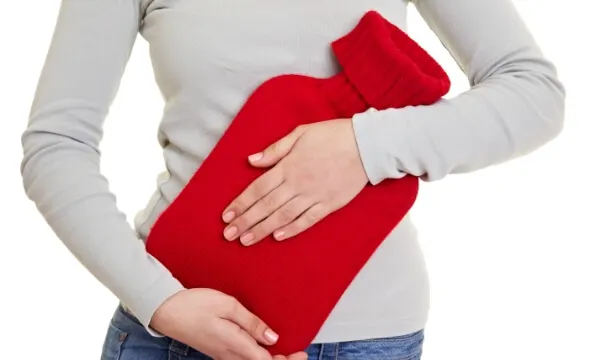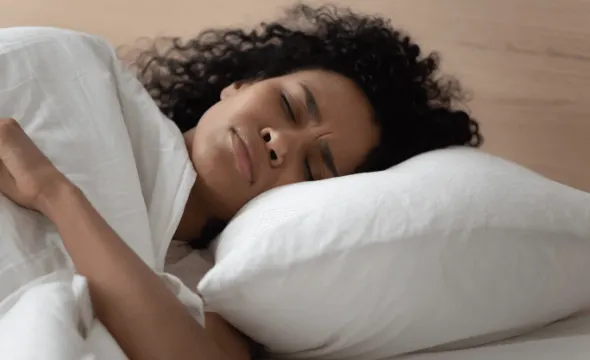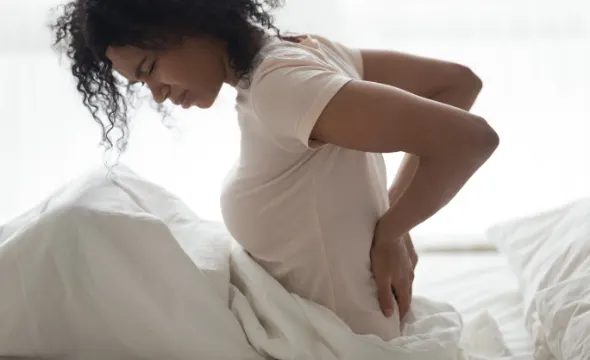Light Periods: Causes, Symptoms & when to seek help?


How do you know if you're experiencing a light period?
How do you know if you're experiencing a light period? Menstrual cycles vary widely from one woman to another, making it challenging to define what's considered "normal" for everyone. A light period typically refers to menstrual bleeding that is significantly lighter in flow or shorter in duration than what you usually experience. But when is it simply your body’s natural rhythm, and when should it raise a red flag?
To answer that, it helps to first understand what a normal menstrual cycle looks like. Generally, a typical menstrual cycle ranges from 21 to 35 days, with bleeding lasting between two and seven days. However, the amount of blood, duration, and symptoms can differ from person to person. Some women naturally have lighter, shorter periods, while others may notice changes over time due to various physical, hormonal, or lifestyle factors.
Knowing what a normal period for you is, will help you recognise if your periods are getting shorter and lighter. Use Always’ Period Calculator to know your cycle length and next period date. If you have less bleeding during periods than usual or very light period blood, then these are some red flags that should alert you. Besides these, there are some other signs and symptoms that you should watch out for. Those are:
- If your period lasts fewer than two days
- If you have light period blood, like spotting
- If you miss one or more regular-flow periods
- If you have light periods more frequently than your typical 21- to 35-day cycle.


What Causes a Light Period?
It’s important to note that not all the above symptoms mean you have a problem. There are times when stress or extreme weight fluctuations trigger a light period, and that’s manageable. Here are some of the most common reasons why you could have a light period.


Pregnancy
A light period could be an indicator of pregnancy, especially if you’ve not been using birth control pills. Implantation bleeding, which is a light spotting kind of bleeding that occurs when a fertilized egg implants itself in the lining of the uterus and lasts for up to two days, could easily be mistaken for a light period.
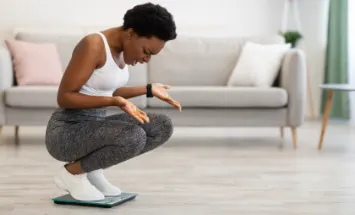

Weight fluctuations
If, for any reason, you have gained or lost a lot of weight suddenly, your menstrual cycle is bound to go through changes. Excessive exercising adds a lot of physical stress on your body which affects your periods.


Stress
One of the most common reasons for menstrual cycle-related problems is stress. When you go through turbulent situations that lead to emotional stress, it can really affect your menstrual cycle.
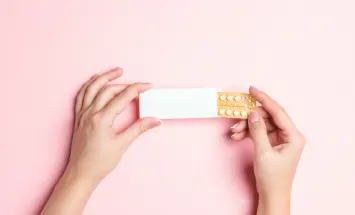

Birth Control
If you’re on hormonal birth control, it may cause changes in your menstrual cycle such as light periods. This is because most hormonal birth control obstruct your body from releasing an egg, and this leads to thinner uterus lining and eventually a light period. Birth control devices such as IUDs may also cause you to have periods that are lighter than usual.


Age-related conditions

As you get older, your periods get shorter.
Your menstrual cycle gets more stable in your 30s than in your teens. If you have light periods, you could be entering menopause or pre-menopause.


Other conditions
Certain conditions such as Polycystic ovary syndrome (PCOS), which is a result of hormonal imbalance could cause you to have light periods. Eating disorders like anorexia or bulimia too can affect your menstrual cycle.


Risk factors
Any woman of any age can have a light period. It just means that your body is not working the way it typically does. However, there are certain factors that make you more susceptible to having light periods. These include:


Breastfeeding
This can delay the return of your periods and when they do, may also lead to lighter periods.


Stress
As discussed, if you’re stressed all the time, it will affect your menstrual cycle along with other areas of your health.


Reproductive conditions
If you already have certain reproductive conditions like PCOS, the nature of it that causes an imbalance in your hormone levels may lead to changes in menstrual flow too.


How to Manage and Track Light Periods
Staying prepared and tracking your cycle can help you better understand your body and manage light periods effectively. Here are some helpful tips:
Use a period tracking app or calendar to log your symptoms, flow levels, and cycle duration. This can help identify patterns and alert you to any significant changes over time.
Keep over-the-counter painkiller handy for menstrual cramps. Ask your doctor for the right prescription.
Keep a stock of your trusted Always sanitary pads with you at all times. Use the Always Ultra Thin Pads that offer up to 100% comfortable protection. It is designed to have a super absorbent core with the InstantDry System that absorbs menstrual discharge in just a few seconds. Additionally, the Ultra Thin pad is also armed with flexible wings. This means the pads stays in place as you go about completing your tasks and daily routine.
Dehydration and poor nutrition can affect your hormones and menstrual cycle. Drink plenty of water and include iron-rich and whole foods in your diet to support your overall well-being.
Quality sleep helps regulate hormones that influence your menstrual cycle. Aim for at least 7–9 hours of rest per night, especially during your period.
Chronic stress can disrupt your hormonal balance, often leading to light periods. Incorporate stress-reducing activities such as yoga, meditation, deep breathing, or journaling into your daily routine.
While regular physical activity supports hormonal health, excessive or high-intensity workouts may cause menstrual irregularities. Balance your routine with gentle exercises like walking or stretching if you notice changes in your cycle.
Deficiencies in certain nutrients like iron, vitamin D, or B12 may contribute to menstrual changes. Speak to your doctor about supplements that support menstrual and hormonal health.


When Should You See a Doctor for Light Periods?
While a light period is often harmless and influenced by lifestyle factors such as stress, diet, or exercise, there are times when medical advice is necessary. Speak to a healthcare provider if you notice any of the following:
Consistently light periods for three or more cycles
Pelvic pain or discomfort during menstruation
Irregular or missed periods
Unusual pain that interferes with daily life
Lighter flow accompanied by intense cramps
A consistent change in your menstrual flow may indicate an underlying health issue such as a hormonal imbalance, thyroid disorder, or reproductive condition. Early diagnosis can help manage potential concerns and keep your menstrual health on track.
Read more about period symptoms, causes of irregular periods and what causes period pains.
Curious about exercise to get periods early? Learn how physical activity can help support your cycle.
FAQs
Is a light period cause for concern?
If you have light periods, it’s usually not something to be worried about. Consult with your doctor if you have a lighter period than usual but are still having intense cramps, pelvic pain, or irregular cycles.
When should I be concerned about a light period
You should be concerned if you have light period consistently for three menstrual cycles, and if it is accompanied by intense cramps.
What is the reason for less bleeding during periods?
There are many factors that could cause periods that are lighter than usual such as pregnancy, using birth control, extreme weight gain or loss, and stress among others.






